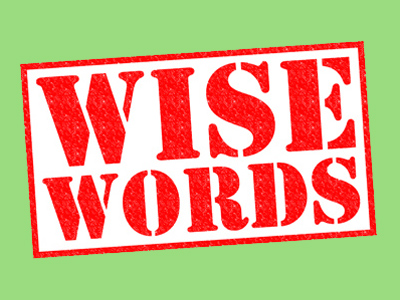
VR - Answering Questions About Words
This is a new article which was formerly a part of Spotting Synonyms or Antonyms and Answering Questions About Words. For the sake of clarity, that article has now been split. You can read the rest of its content in our new pieces, Opposite Meaning and Spotting Synonyms.
Answering Questions About Words is perhaps the easiest part of the Eleven Plus Verbal Reasoning Exam. These types of question are not included by all exam boards, but we’ve mentioned them here just in case your child does come across them. Any candidate who knows how to list words alphabetically, knows the difference between vowels and consonants, and can count the number of letters in words, will be able to answer them.
The questions are all fairly straightforward and that, I imagine, is why they only appear in certain styles of Verbal Reasoning papers. The main issue here is not whether your child can do them, but whether they can complete them under intense time pressure without making a silly mistake.
How Are These Kind Of Questions Posed In The Exam?
Candidates are given a list of words and then posed several questions about them. The questions are not difficult at all and, so long as a child is not careless, should not be a problem.
As always, the best way to show you what to expect is to give you an example.
Example Question One
Look at the words below and then answer the questions about them.
| SILVER | SALVER | SOLVER | ELEVEN | SALTED |
- Which consonant appears most frequently?
- Which vowel does not appear in any word?
- Which word would come first in a dictionary?
- Which would appear last?
The words are deliberately similar. They start to meld into one on the page and, when the time is ticking, even the most conscientious child is prone to slipping up. If you want to train your child well for sitting the test then they MUST know how to work against the clock.
The answers are 'L', 'U', 'ELEVEN' and 'SOLVER' but I hardly need to point these out and techniques to get them right are hardly worthwhile!
Just in case anybody is not sure what the difference is between vowels and consonants, or how to arrange words alphabetically, here’s an explanation (although I doubt very much that you will need it):
What Are Vowels?
A vowel is a sound that is made by allowing breath to flow out of the mouth, without closing any part of the mouth or throat.
The number of vowels in the English alphabet is five: A, E, I, O and U.
What Are Consonants?
A consonant is a sound that is made by blocking air from flowing out of the mouth with either the lips, teeth, tongue, or palate.
There are 21 consonants in the English alphabet: B, C, D, F, G, H, J, K, L, M, N, P, Q, R, S, T, V, W, X, Y and Z.
Tip: If your child struggles when it comes to identifying consonants or vowels, just get them to memorise the five vowels – all other letters are considered to be consonants (though sometimes they are pronounced like vowels: Y and H for example).
How To Arrange Words Alphabetically.
Firstly, make sure your child knows the order of letters in the alphabet. This shouldn’t be a problem as most children learn that when still in reception.
Next, arrange all the words in your list in alphabetical order. If two or more words begin with he same letter, that is when some children come unstuck.
For words with the same first letter, move on to the second letter and whichever comes first in the alphabet is listed next. If the second letter is the same, then move on to the third, then fourth, fifth etc. Repeat this process until all the words have been arranged.
The final step is one which often confuses adults! It won’t be used in the Verbal Reasoning exam, but it’s still a good thing to learn. If two or more words have the same letters in the same order, then the shortest word comes first alphabetically. For example, ‘wonder’, ‘wondered’ and ‘wondering’ all begin with the same six letters. ‘Wonder’ does not have a seventh letter, so it comes first alphabetically, followed by ‘wondered’ (‘e’ in seventh) and ‘wondering’ (‘I’ in seventh).
Sample Tests
It is very unlikely that your child will have to face Answering Questions About Words in their exam. Nevertheless, we have included it for the sake of completion. There are also four quizzes on the Education Quizzes website which follow this format. You can find them in the Eleven Plus Verbal Reasoning section, or you can follow these links:
Go through them with your child, but don't test their ability to give the correct answers - if they can't do it then they should not be sitting the Eleven Plus. Instead, put them under pressure to solve these sorts of questions in thirty seconds.
Encourage your child to stay calm, be systematic, deal with each question one at a time, and make sure that they know the alphabet and how to use a dictionary!




